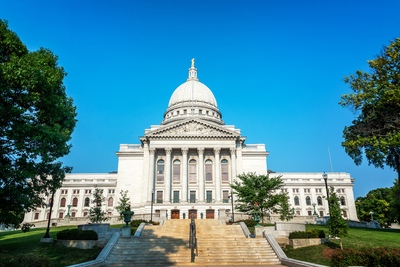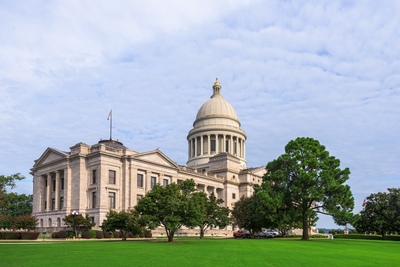While Tuesday’s elections brought new policymakers, such as governors in New Jersey and Virginia, as well as party control changes in the Washington and possibly Virginia legislatures, voters also decided on specific issues via ballot measures. Although it was an unusually low number this year with only 27 measures making the ballot in 2017, the lowest number in a year since 1947, according to Ballotpedia.
Ohio Issue 2 - Drug Price Standards Initiative
The most heavily-financed campaign among the ballot measures was for and against a drug price proposal in Ohio. Voters
soundly rejected Question 2, which would have
required the state to purchase drugs at a price no higher than what the U.S. Department of Veteran’s Affairs pays for drugs. The measure also included a curious legal quirk that would have given the proposal’s proponents standing in court to defend the measure at taxpayer expense, a provision that made advocate Michael Weinstein, a non-profit executive in California, a lightning rod for the campaign.
Maine Question 2 - Medicaid Expansion Initiative
Health care was also an issue in Maine, where
voters approved a measure expanding Medicaid eligibility under the Affordable Care Act, giving coverage to an additional 70,000 residents. Medicaid expansion has been passed by the state legislature five times, but each time Governor Paul LePage (R) vetoed Medicaid expansion. Even now, LePage insists he
will not allow for implementation of the measure until the legislature makes changes in the budget. Next year could see a boost in Medicaid expansion measures as political shifts in Virginia (Tuesday's elections added many new Medicaid expansion supporting Democratic members to the House of Delagtes) and Kansas (potentially a new governor after the Trump Administration announced plans to appoint Governor Sam Brownback (R), a staunch Medicaid expansion opponent, to an Ambassadorship).
Initiatives in New York, Texas, Maine, and Pennsylvania
New York voters are asked every 20 years whether or not they want to hold a state constitutional convention. This year, they
rejected that opportunity in overwhelming numbers, with around 80 percent voting no. Texas voters
approved seven constitutional amendments ranging from issues such as giving a homestead exemption on property taxes to surviving spouses of emergency responders, a property tax break for disabled veterans receiving houses from charity, an amendment requiring governor appointees to end their term when it expires, and an amendment allowing minor league sports teams to hold charity raffles.
Speaking of gaming, Maine voters also
rejected a measure that would have allowed a third casino in the state, this one in York County, but did approve a
$105 million transportation bond measure. Pennsylvania voters
approved a measure to allow local taxing authorities to exempt the full amount of property taxes for residents. New Jersey will have
new funds for libraries thanks to an approved ballot measure, and will also protect funds used for environmental cleanup from being poached for other uses.





